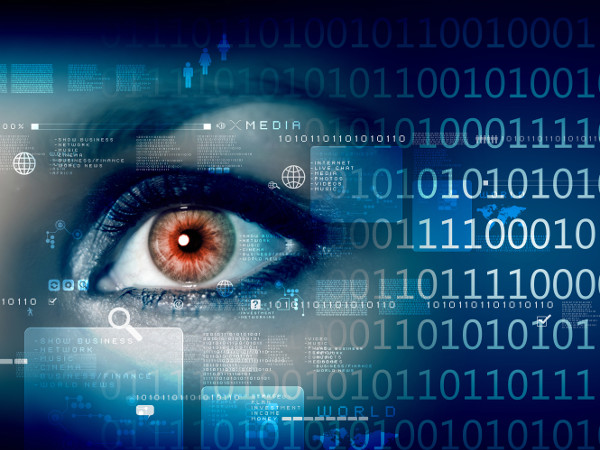Porn, Age Verification and ‘Safety’ Online
 LONDON – As the U.K. government prepares to roll out an update to the Digital Economy Act, a great deal of commentary is rightfully focused on questions about privacy, the specter of government censorship and the feasibility of age-verification in an online context.
LONDON – As the U.K. government prepares to roll out an update to the Digital Economy Act, a great deal of commentary is rightfully focused on questions about privacy, the specter of government censorship and the feasibility of age-verification in an online context.
Less discussed, perhaps, are the critiques coming from those in Britain who believe the government’s plans don’t go far enough in terms of age-restricting access to adult content.
“Watching online pornography can have a deeply damaging effect on young people, their behavior and their understanding of healthy relationships,” said a spokesperson for the National Society for the Prevention of Cruelty to Children. “Robust age verification and regulation for online pornography are important first steps in keeping children safe online. But these steps do not go far enough.”
So, what further steps does the NSPCC advocate? Among other things, the organization wants companies that operate social networking platforms to introduce a new form of special account made just for kids, complete with as-yet-undefined “extra protections” for minors.
“The NSPCC is calling for social networks to be required by law to give under-18s Safe Accounts with extra protections built in, so that children are kept as safe online as they are in the real world,” the spokesperson said. (Emphasis mine.)
Think about that last line for a moment. What does it mean, exactly?
Does the NSPCC really think kids are “safe” in the “real world?” If so, how do they manage to hold this opinion? Have they never read the materials on their own website?
While there’s no question the internet is filled with frightening possibilities, I submit to you a child being in contact with a bad person in an online environment is safer than a child who’s in contact with the same sort of person working the lunch counter at their school — or manning the confessional at their church, for that matter.
For all the (often hyperventilating) talk about online dangers, much of what you read is simple fear mongering of the worst sort. And if you think only a disgusting, porn-site-employed chump like me thinks so, consider this critique offered by Nancy Willard, the author of Cyber-Safe Kids, Cyber-Savvy Teens: Helping Young People Use the Internet Safely and Responsibly.
Discussing the sort of fear mongering she sees as profoundly counterproductive to helping young people surf the web safely, Willard said highest on her list of fear-promoting statements is the line “One in seven young people have been sexually solicited online.”
“When I spoke at the California Cyber Safety Summit… I asked the audience how many of them thought this meant that one in seven young people had received communications from the kinds of men shown on NBC Dateline’s To Catch a Predator series and were in a dangerous situation,” Willard wrote. “Most of the hands in the audience were raised.”
As it turns out, however, the study in question was counting a great deal more than contacts from To Catch a Predator-style creeps.
“In fact, the study from which this data came, conducted by the University of New Hampshire’s Crimes Against Children Research Center (CACRC), asked about a variety of acts in its survey questions, including: ‘situations where someone on the internet attempted to get them to talk about sex when they did not want to or asked them unwanted sexual questions about themselves,’” Willard noted. “This is essentially sexual harassment — a problem, but a different problem from the concern of sexual predation.”
Further, of the teens in the study who were, in fact, “sexually solicited,” Willard pointed out “43 percent identified the ‘solicitor’ as another teen.”
Folks, if you’re worried about teenagers of the opposite sex making sexual overtures to your teenager, or see this sort of thing as an unbearable threat to your teen’s safety, I suggest you start home-schooling, investigate the practicality of hermetically sealing your child’s bedroom and maybe acquire some manner of giant bubble, as well.
Child safety is a serious issue, and I’m not saying it’s something to be taken lightly. But to suggest children are safe in the real world and drastically less safe online reflects staggering stupidity. It speaks to a mindset in which sexual assault or kidnapping are the only dangers facing children, a notion that sells short the undeniably dangerous, unpredictable world in which we live.
Even if you do believe kids are at significantly higher risk of being assaulted or kidnapped than, say, killed in an automobile accident during a mundane daily drive to school, how can you ignore the statistics that show how much more likely they are to be so victimized by a family member or by someone else with whom they have regular “IRL” contact?
If what the NSPCC wants to do is protect children, not too many people will argue with their mission. If, on the other hand, what they want to do is child-proof the entire internet, they’re going to be just as disappointed as they would be if their plan was to child-proof the entire real world.
No matter how you slice it, child-proofing life, be it online or offline, simply can’t be done. Perhaps, given the unintended consequences of failed attempts to do so, it shouldn’t be tried to begin with.
One Comment
Leave a Reply
You must be logged in to post a comment.













Pingback: Porn, Age Verification and ‘Safety’ Online – TripleXers Blog